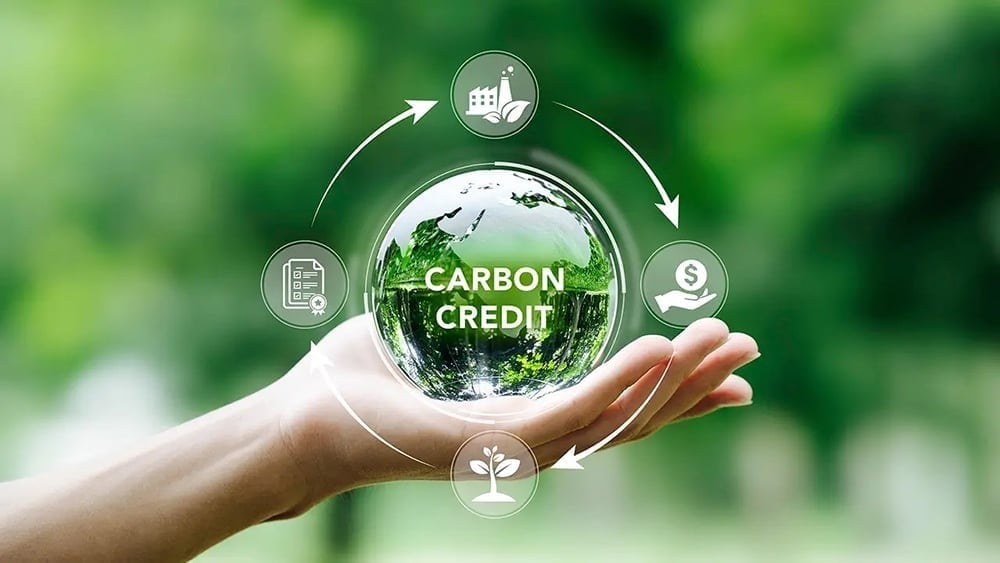December 1, 2025 | 12:08 GMT +7
December 1, 2025 | 12:08 GMT +7
Hotline: 0913.378.918
December 1, 2025 | 12:08 GMT +7
Hotline: 0913.378.918
In collaboration with the Southeast Asia Energy Transition Partnership (ETP) and the United Nations Office for Project Services (UNOPS), the Ministry of Finance (MOF) recently held a workshop to kick off and share experience for the Technical Assistance Project "Capacity Building for the Ministry of Finance in Researching and Preparing for the Pilot Operation of a Carbon Credit Exchange in Vietnam."

The Ministry of Finance continues to research and propose a plan for organizing, developing, and launching a carbon credit exchange.
The Prime Minister issued Decision No. 232/QD-TTg dated January 24, 2025, approving the scheme for establishing and developing the carbon market in Vietnam. The scheme clearly outlines the market deployment roadmap, including the pilot phase from 2025 to the end of 2028 and the official operation period from 2029. Under this scheme, the Ministry of Finance has been designated as the lead agency, working in coordination with the Ministry of Agriculture and Environment and relevant Ministries and branches to establish the domestic carbon market.
At the workshop, both domestic and international speakers presented the project’s objectives, expected outcomes, output products, key stakeholders, and implementation plans. The speakers also provided updates on the development roadmap for the carbon market in Vietnam during the pilot phase. At the same time, present international experiences and lessons for Vietnam in designing and managing a carbon credit exchange, discuss initial research results, and develop a collaborative framework among stakeholders.
Mr. John Robert Cotton, Deputy Head of ETP, expressed his hope that the workshop would offer in-depth insights and comprehensive analysis to support MoF officials in implementing the carbon credit exchange in Vietnam. In particular, focusing on the 2025–2028 pilot phase and realizing recommendations to strengthen Vietnam’s capacity in evaluating the legal framework, infrastructure, and international experience relevant to the design of a carbon credit exchange.
In addition, the implementation of this Technical Assistance Project is expected to accelerate Vietnam’s transition to sustainable energy. It aligns with the established agreements and Sustainable Development Goals, while laying the groundwork for renewable energy, energy efficiency, and sustainable infrastructure. This contributes to economic growth and ensures national energy security.
Translated by Thu Huyen

(VAN) The Institute of Agricultural Sciences for Southern Vietnam (IAS) marked its 100th anniversary in Ho Chi Minh City, celebrating a century of growth as a leading institute contributing significantly to Viet Nam’s agricultural development.

(VAN) An increasing number of livestock farms are using biogas generators to create a source of renewable electricity, helping to save costs and mitigate environmental pollution.

(VAN) Small changes in rice cultivation, from irrigation methods and straw collection to input management, are paving a new way for Vietnam's agriculture in the journey toward emission reduction.

(VAN) With the project of converting biogas into renewable electricity, Australia is both helping pig farms reduce their energy costs by up to 25% and contributing to environmental protection.
![Hue aims for Net Zero: [1] Initial steps from green transportation](https://t.ex-cdn.com/nongnghiepmoitruong.vn/608w/files/huytd/2025/11/28/0853-anh-6-giao-thong-xanh-hue-094717_940-153724.jpg)
(VAN) For sustainable development, Hue City is implementing many solutions to promote green transportation, which is an important initial step on the journey to building a Net Zero Hue.

(VAN) Nghe An Province, one of the localities with the largest forest area in Vietnam, is set to gain significant benefits from the implementation of forest carbon credit payments.

(VAN) Circular agriculture helps Mekong Delta farmers cut greenhouse gas emissions while boosting incomes through efficient reuse of agricultural by-products.